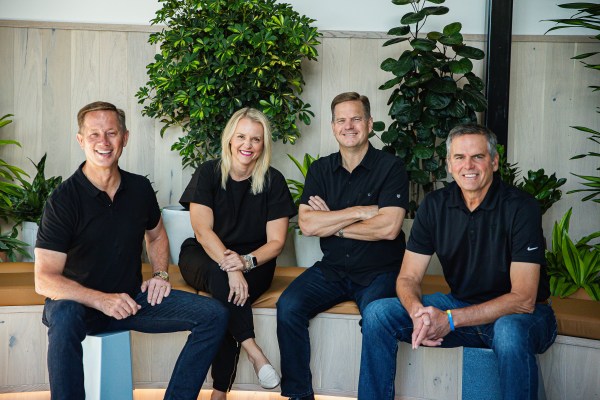

RevRoad was started in 2017 as a venture services firm for startups in Utah. The organization offered a two-year program with access to 12 resources ranging from legal services to sales help to mentorship in exchange for equity. But unlike many entities, it didn’t have capital to invest in the startups that completed the program. Now it has a solution for that.
RevRoad Capital raised $61 million for its debut fund to focus on early-stage investments, mainly at seed. The Provo, Utah-based fund will operate as a sister organization to RevRoad and will invest the majority of its capital into companies that went through RevRoad’s program. It will also make investments in select other startups as well.
David Mann has been working with RevRoad since 2018 when he got involved after he left his job as the director of Amazon Game Studio. When RevRoad began to formulate the idea of launching a venture fund back in 2022, Mann knew he wanted to be a part of it and signed on as the fund’s executive managing director.
“I decided to un-retire and lead this fund and really try to shape it in a way that fulfills the vision of RevRoad and helps founders get hard dollars and also great support from their venture partners as they scale,” Mann told TechCrunch.
While the timing made sense for RevRoad, the market conditions weren’t ideal. The past year has been one of toughest periods for fundraising — especially for emerging managers. First-time funds are on track to close the smallest amount of funds — and raise the lowest amount of capital — in 2023 compared to the last decade, according to Q3 data from PitchBook.
Managing director Rachelle Morris told TechCrunch that they weren’t immune to the market pressures. “We definitely felt the headwinds,” Morris said. “There were a lot of folks who told us, ‘Wow, we love your thesis and we love the team, we just don’t have liquidity right now.’”
But they did find particular success with a specific group of LPs: women operators, which in Utah were largely an untapped resource. When Morris started the fundraising process, she reached out to a longtime acquaintance and local business leader and was shocked to find out she’d never been asked to invest before.
“You would expect that if there is any woman in the Utah community who would have been shown deals in funds, she would have been one of those 20 women,” Morris said. “That’s where we gained confidence of, ‘Huh, women are being underestimated as investors.’”
She was right. These local women operators ended up making up 30% of the fund’s LP base.
Mann said he also thinks their strategy helped them in a tougher fundraising environment. The majority of RevRoad Capital’s investments are built off of existing relationships with startups from RevRoad, which means the firm already has two years of data and diligence on a startup before it gets a check. He thinks that makes the firm look less risky in LP’s eyes.
Because RevRoad’s headquarters are in Utah, Mann said the majority of the portfolio companies for Fund I will be in Utah, but as RevRoad continues to expand into other geographies, RevRoad Capital will as well. But the current focus isn’t limiting, because Utah is a great place for startups, he said: There is a good startup culture and the local government has made it so there are few barriers for startups to launch.
The fund will invest as a generalist but with a stronger focus in areas, including electric vehicles, AI, SaaS, retail and manufacturing. The firm’s portfolio companies will still get access to many of RevRoad’s startup services regardless of whether they went through the program initially.
“Once a company is in RevRoad LLC or RevRoad Capital, they are a RevRoad company,” Mann said. “We pull that expertise in where needed. RevRoad is happy to help RevRoad Capital companies. They can have an impact.”